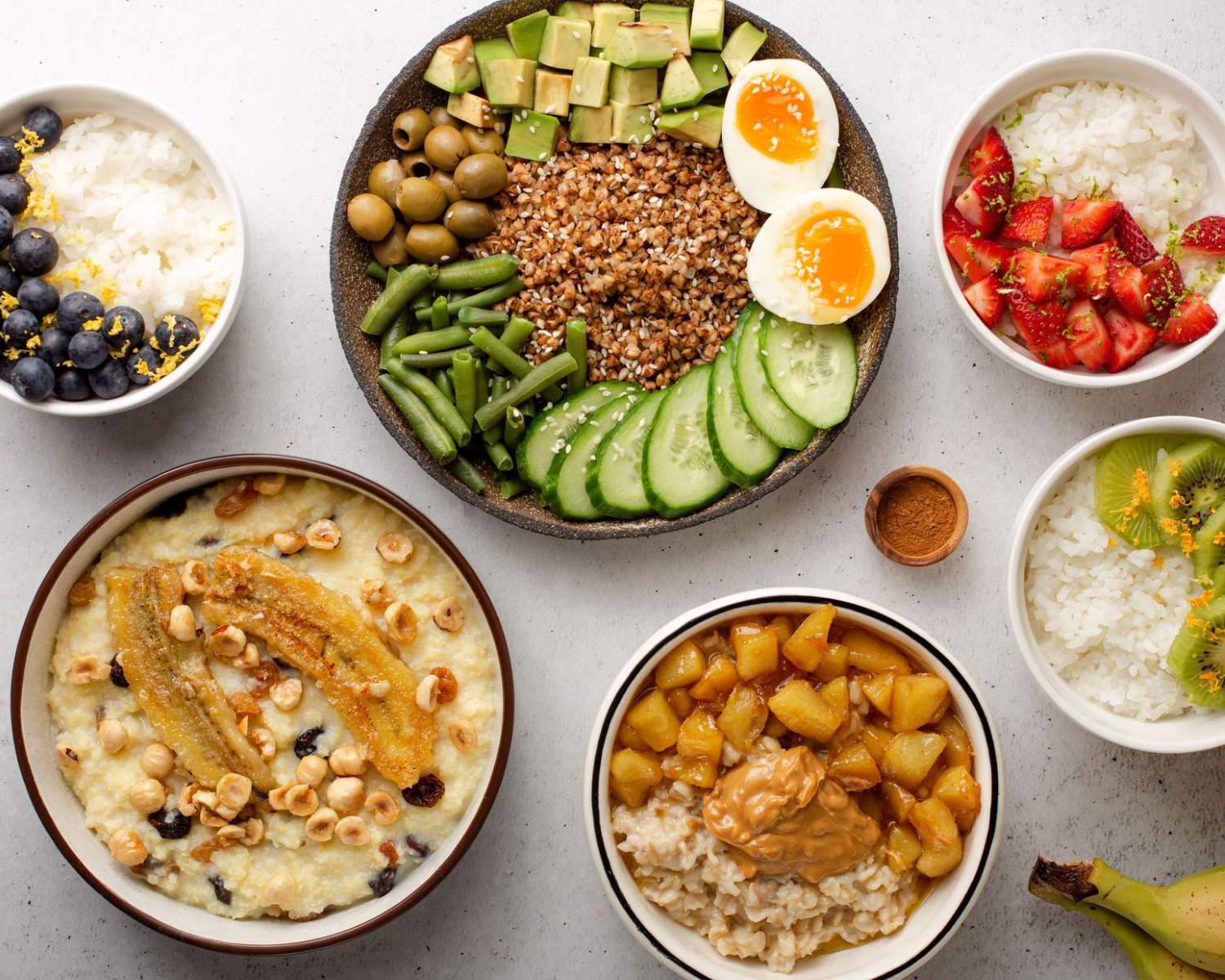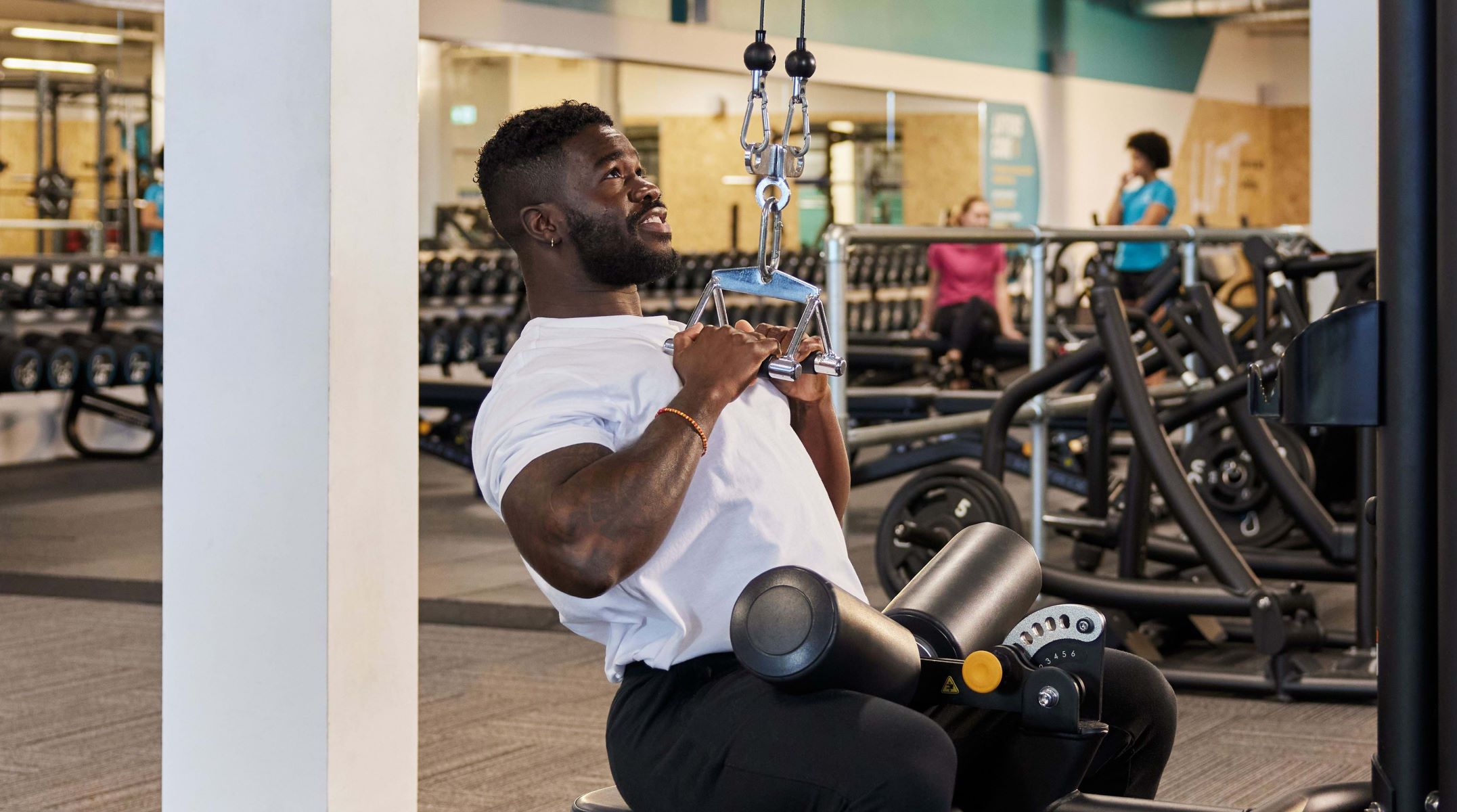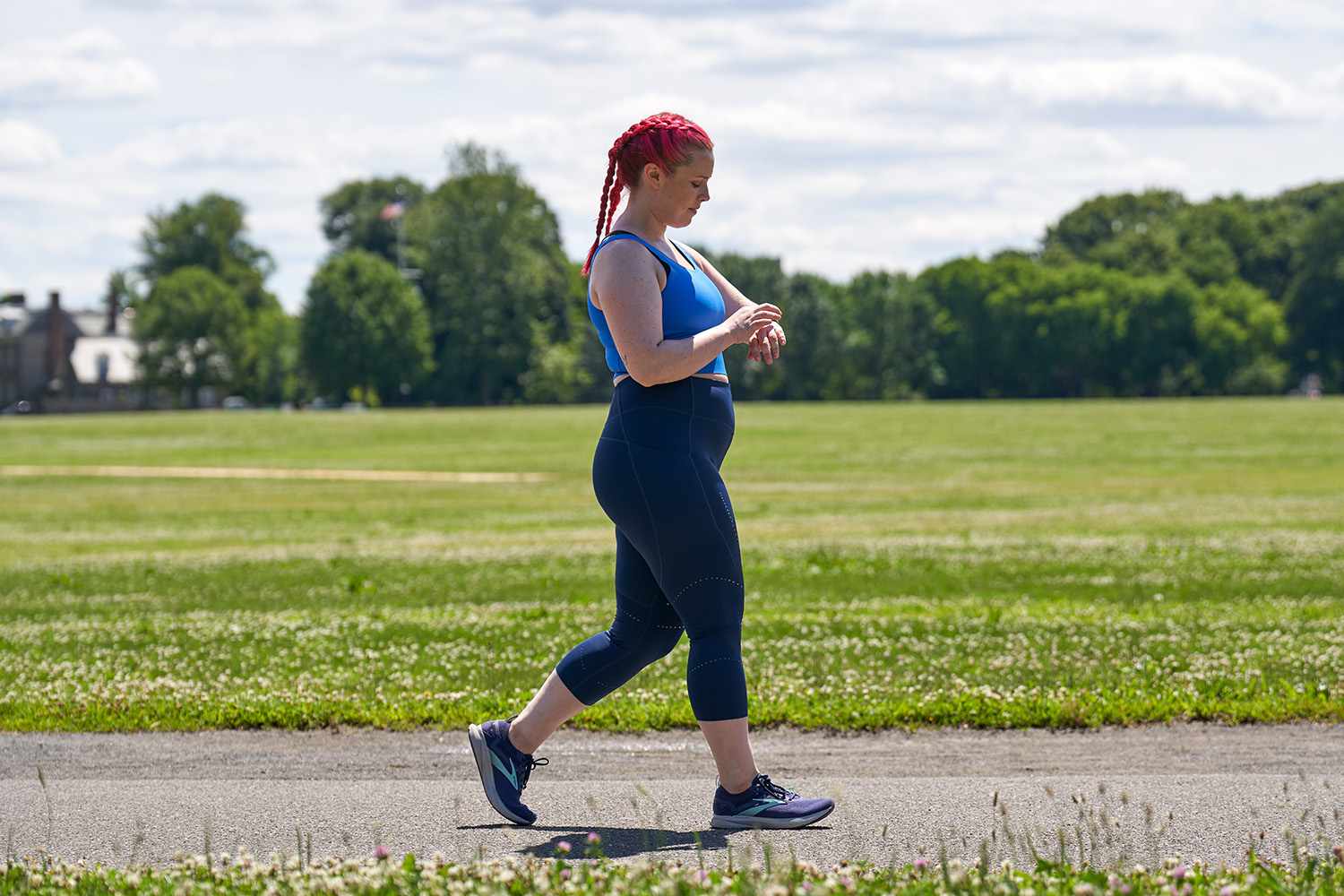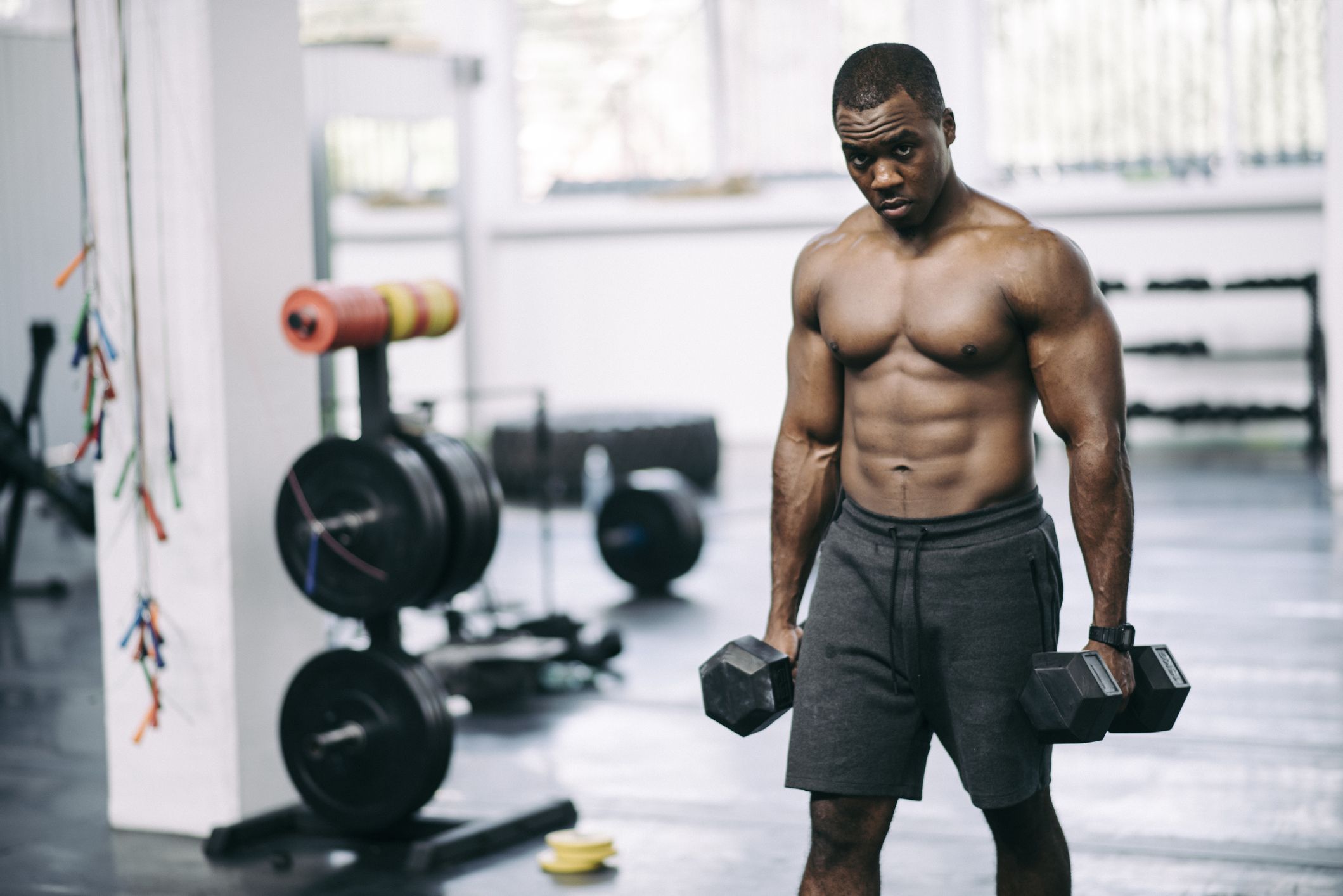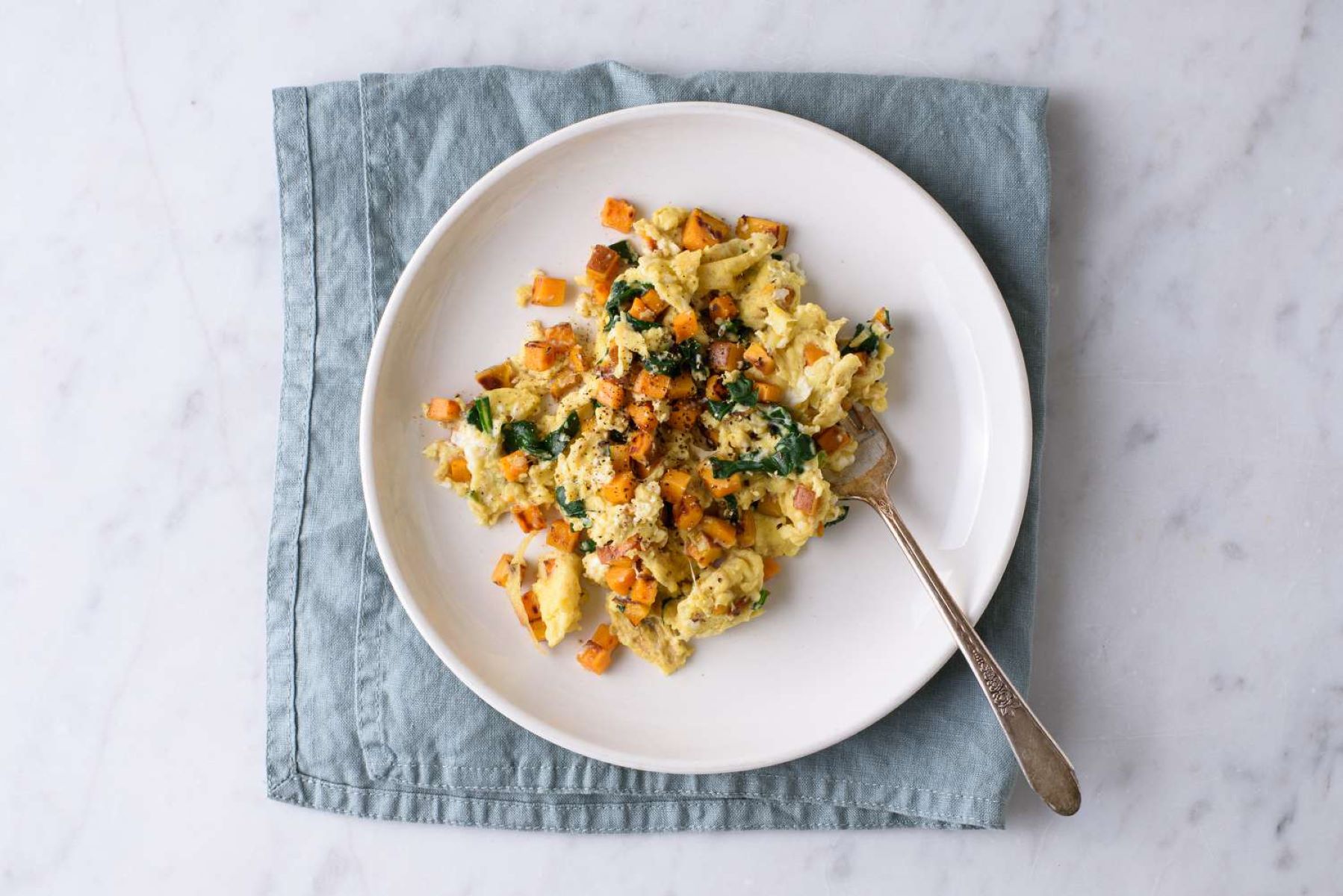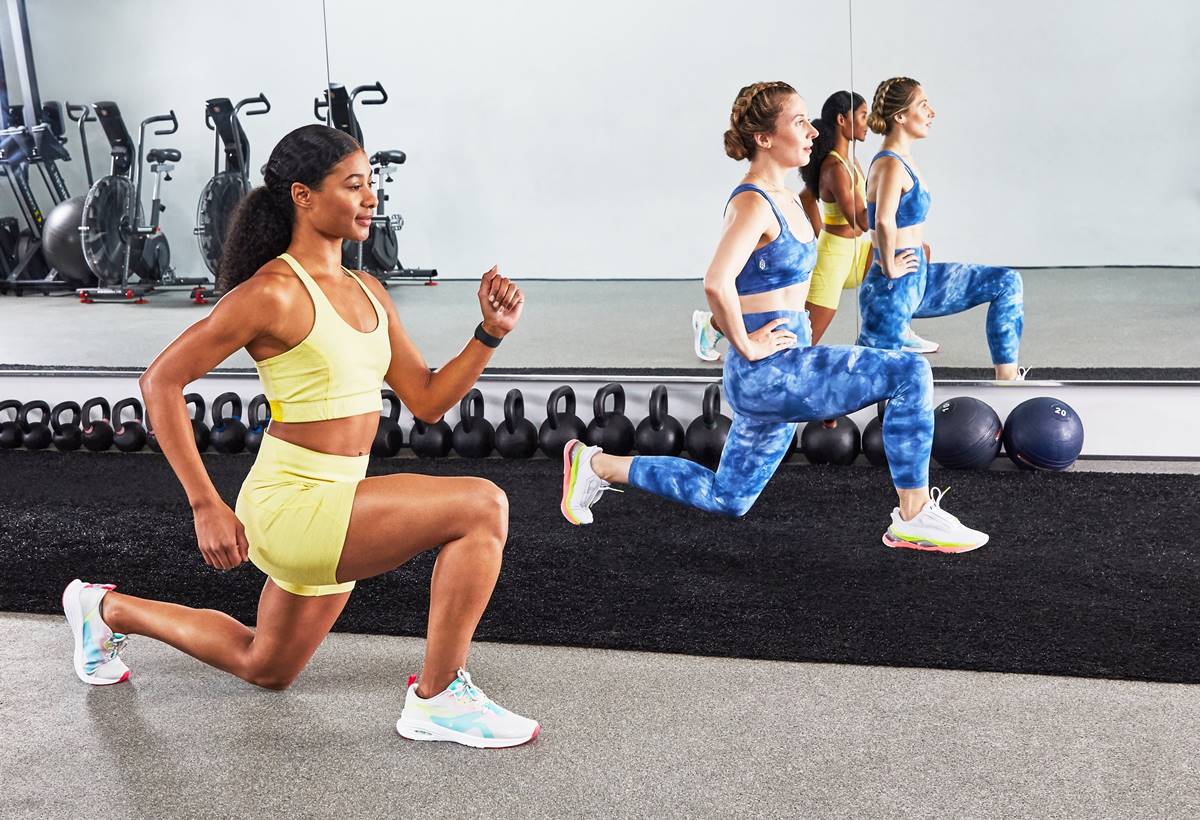Home>Misc>Featured>What To Eat Before Workout To Lose Weight
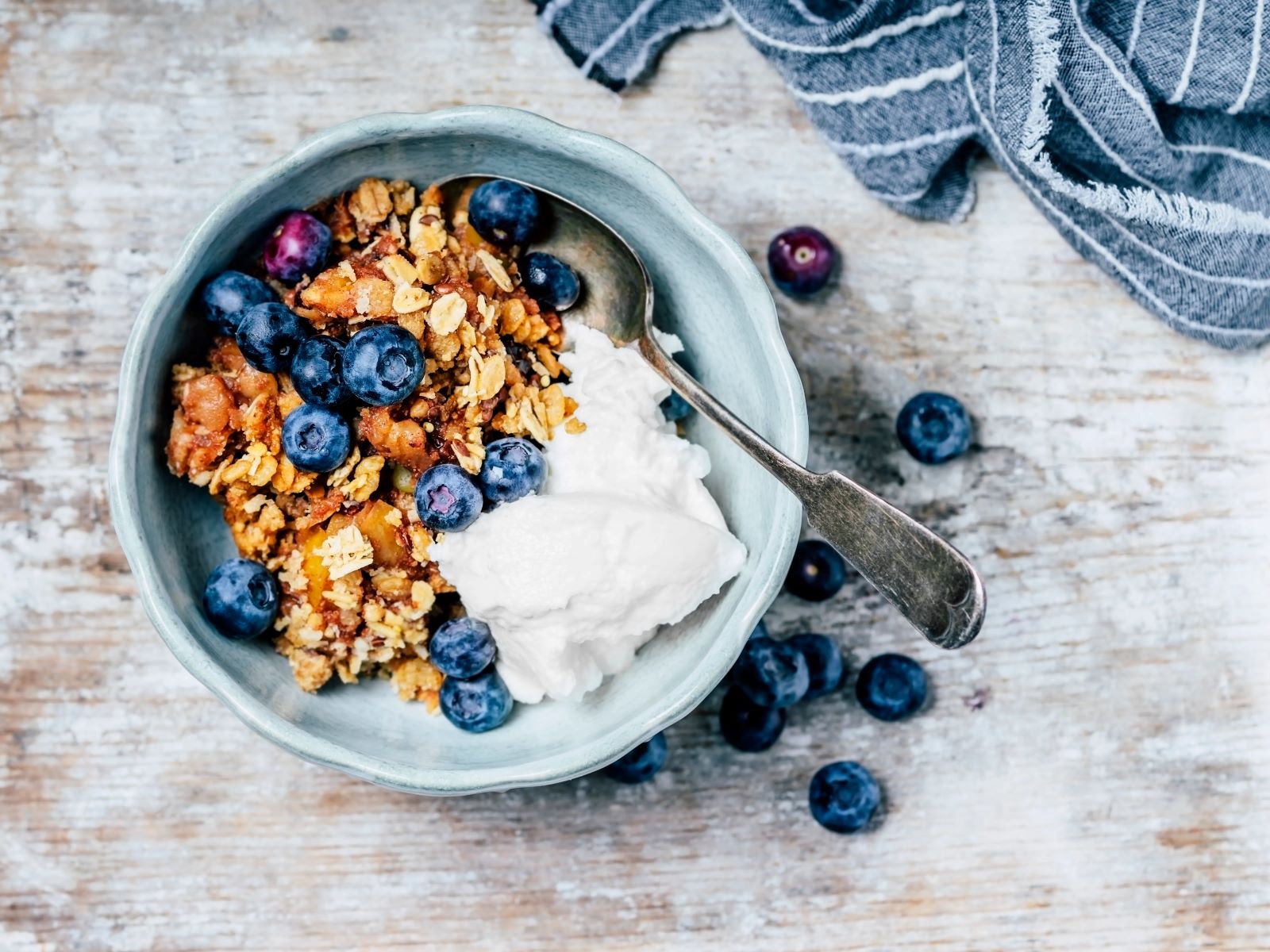

Featured
What To Eat Before Workout To Lose Weight
Modified: January 2, 2024
Fuel your body with the right pre-workout meals and watch those pounds melt away. Discover the featured foods that will supercharge your weight loss journey.
Introduction
When it comes to achieving weight loss goals, exercise plays a fundamental role. Whether you’re hitting the gym, going for a run, or doing a home workout, fueling your body properly before you exercise is essential for optimal performance and maximizing fat burning potential. The food you consume before a workout can significantly impact your energy levels, endurance, and overall results.
But with so many conflicting opinions and information available, it can be challenging to determine what exactly to eat before a workout to lose weight. This article will guide you through the importance of pre-workout nutrition and provide practical meal ideas that can help you achieve your weight loss goals.
While it may be tempting to skip a pre-workout meal in an attempt to burn more calories, doing so can have adverse effects on your performance and overall health. Without proper fuel, your body may not have the energy it needs to perform at its best, leading to fatigue, decreased performance, and even an increased risk of injury.
Additionally, consuming the right combination of macronutrients before a workout can help jumpstart your metabolism, improve muscle recovery, and aid in fat burning. By providing your body with the right nutrients, you can ensure that it has the necessary resources to support your exercise routine and enhance your weight loss efforts.
Throughout this article, we will discuss the ideal macronutrient composition for pre-workout meals, focusing on carbohydrates, protein, and healthy fats. We will also touch upon the importance of hydration and provide you with practical pre-workout meal ideas that can help you maintain energy levels, improve endurance, and support weight loss.
Importance of Pre-Workout Nutrition
Proper pre-workout nutrition is crucial for anyone looking to lose weight and improve their fitness levels. The food you consume before exercising can have a significant impact on your performance, energy levels, and overall results. Let’s explore why pre-workout nutrition is important:
- Improved Energy Levels: Consuming a balanced meal or snack before your workout provides your body with the necessary energy to perform at its best. Carbohydrates, in particular, are an excellent source of fuel for your muscles, helping to sustain your energy levels throughout your workout.
- Enhanced Performance: When you fuel your body with the right nutrients, you can expect improved performance during your workout. Adequate pre-workout nutrition can help increase strength, endurance, and power, allowing you to push harder and get the most out of your exercise sessions.
- Increased Fat Burning: One of the primary goals of a weight loss workout is to burn excess body fat. When you consume the right pre-workout foods, you can enhance your body’s ability to burn fat during your exercise routine. A combination of carbohydrates and healthy fats can help your body utilize stored fat as an energy source.
- Optimal Muscle Recovery: Exercise places stress on your muscles, and proper pre-workout nutrition can aid in muscle recovery. Consuming protein before your workout helps initiate the muscle-building process and reduces muscle damage, ensuring that you recover efficiently between workouts.
- Reduced Muscle Breakdown: Without adequate nutrition before exercise, your body may turn to muscle tissue for energy. This can result in muscle breakdown, hindering your progress towards weight loss and toning goals. By providing your body with the right nutrients, you can protect your muscles and promote lean muscle mass development.
By understanding the importance of pre-workout nutrition, you can make informed choices on what to eat before exercising. The next section will focus on the ideal macronutrient composition for pre-workout meals, ensuring that you’re fueling your body with the right nutrients for weight loss and peak performance.
Macronutrient Composition for Pre-Workout Meals
When it comes to pre-workout nutrition, the macronutrient composition of your meals plays a vital role in determining their effectiveness. By understanding the role of each macronutrient (carbohydrates, protein, and healthy fats) and their impact on your body, you can create balanced pre-workout meals that support your weight loss goals. Here’s a breakdown of each macronutrient and its importance:
- Carbohydrates: Carbohydrates are the primary source of energy for your body. Consuming complex carbohydrates, such as whole grains, fruits, and vegetables, before your workout ensures a steady release of energy, support sustained endurance, and prevent blood sugar crashes. Aim to include a mix of slow-releasing carbohydrates and faster-acting carbohydrates in your pre-workout meal.
- Protein: Protein is essential for muscle growth, repair, and recovery. Including a source of lean protein in your pre-workout meal can help prevent muscle breakdown, support muscle building, and aid in post-workout recovery. Great protein sources include chicken breast, tofu, Greek yogurt, or protein-rich plant-based alternatives.
- Healthy Fats: While fats are generally slow to digest, consuming small amounts of healthy fats before a workout can provide a sustained source of energy. Nuts, seeds, avocado, or a drizzle of olive oil are excellent choices. Avoid heavy or greasy foods, as they may cause discomfort during exercise.
The ideal macronutrient composition for your pre-workout meal will depend on the intensity and duration of your workout, as well as your personal preferences and dietary restrictions. As a general guideline, aim for a balanced meal containing approximately:
- 45% to 65% of calories from carbohydrates
- 20% to 30% of calories from protein
- 20% to 35% of calories from healthy fats
Keep in mind that these percentages can be adjusted according to your individual needs and goals. If you’re unsure about the right macronutrient composition for your pre-workout meals, consulting a registered dietitian or nutritionist can provide personalized guidance based on your unique circumstances.
Now that you understand the importance of macronutrient balance in pre-workout meals, let’s explore specific food options and meal ideas to fuel your workouts and aid in weight loss.
Carbohydrates: The Fuel for Your Workout
Carbohydrates are the key macronutrient when it comes to fueling your workouts. They provide your body with the necessary energy to power through intense exercise sessions and help optimize your weight loss efforts. Here’s why carbohydrates are crucial for your pre-workout meals:
1. Energy Source: Carbohydrates are your body’s preferred source of energy. When you consume carbohydrates, they are broken down into glucose and stored as glycogen in your muscles and liver. During a workout, your body taps into these glycogen stores to fuel your muscles, enhancing your endurance and performance.
2. Sustained Energy: Complex carbohydrates, such as whole grains, legumes, and starchy vegetables, provide a steady release of glucose, ensuring a sustained supply of energy throughout your workout. This helps prevent energy crashes and keeps you fueled for longer periods.
3. Glycogen Replenishment: After a period of intense exercise, your glycogen stores become depleted. Consuming carbohydrates before your workout helps replenish these stores, preparing your muscles for future workouts and improving your recovery time.
4. Blood Sugar Control: Balanced carbohydrate intake helps maintain stable blood sugar levels, preventing spikes and crashes that can negatively impact your energy levels and focus during your workout.
When selecting carbohydrates for your pre-workout meals, opt for nutrient-dense options that provide sustained energy without causing digestive discomfort or rapid blood sugar fluctuations. Great choices include whole grains like quinoa or brown rice, sweet potatoes, oatmeal, and fruits like bananas or berries.
Aim to consume carbohydrates about 2-3 hours before your workout to allow for proper digestion. However, if you’re short on time, a smaller portion of easily digestible carbohydrates, such as a piece of fruit or a granola bar, can be consumed about 30 minutes before your workout to provide a quick energy boost.
Remember, everyone’s carbohydrate needs may vary based on their activity level, intensity of workouts, and individual metabolism. Experiment with different carbohydrate sources and portion sizes to find what works best for your body and optimize your performance during workouts.
In the next section, we’ll explore the importance of protein in your pre-workout meals and how it can support muscle growth, recovery, and weight loss.
Protein: The Building Block for Muscle
Protein is a vital macronutrient for pre-workout meals, especially if your goal is to build lean muscle mass, support muscle recovery, and enhance weight loss. Here’s why protein plays a crucial role in your pre-workout nutrition:
1. Muscle Building: Protein is essential for muscle growth and repair. When you exercise, your muscles undergo stress and micro-tears. Consuming protein before your workout provides your body with the amino acids necessary to repair and build new muscle tissue, helping you achieve a toned and defined physique.
2. Increased Satiety: Protein-rich foods are known to promote satiety, keeping you feeling fuller for longer. By including protein in your pre-workout meal, you can control your appetite and reduce the chances of overeating after your workout.
3. Energy During Exercise: While carbohydrates are the primary energy source, protein can also contribute to sustaining energy levels during prolonged workouts. Including a moderate amount of protein in your pre-workout meal can help prevent muscle breakdown and provide additional fuel for your muscles.
4. Post-Workout Recovery: Protein consumed before your workout primes your muscles for post-exercise recovery. It helps kickstart the muscle-building process, minimizes muscle damage, and aids in faster recovery between workout sessions.
When it comes to protein sources for your pre-workout meal, aim for lean options that are easily digestible. Some excellent choices include chicken breast, turkey, fish, tofu, Greek yogurt, cottage cheese, or protein-rich plant-based alternatives like lentils or quinoa.
The amount of protein you should consume may vary depending on factors such as your weight, activity level, and fitness goals. As a general guideline, aim for around 20 grams of protein in your pre-workout meal. This could be achieved through a combination of lean protein sources, such as a chicken breast or a scoop of protein powder blended into a smoothie.
It’s important to note that while protein is essential, it should be balanced with carbohydrates in your pre-workout meal to ensure optimal performance and energy levels. Experiment with different protein sources and portion sizes to find what works best for your body and supports your weight loss and fitness goals.
In the next section, we’ll discuss the role of healthy fats in pre-workout nutrition and how they can provide sustained energy for your workouts.
Healthy Fats: Providing Sustained Energy
While carbohydrates and protein are commonly emphasized in pre-workout nutrition, healthy fats also play a significant role in providing sustained energy and supporting weight loss efforts. Here’s why including healthy fats in your pre-workout meals is beneficial:
1. Sustained Energy Release: Unlike carbohydrates that provide quick energy and protein that aids in muscle repair, healthy fats offer a slow and sustained release of energy. They provide a long-lasting source of fuel for your muscles, helping you sustain endurance during your workout.
2. Enhanced Satiation: Healthy fats are more calorie-dense than carbohydrates or protein, meaning they can help you feel fuller for longer. This can help curb cravings and keep you satisfied throughout your workout, preventing unnecessary snacking or overeating afterwards.
3. Nutrient Absorption: Some vitamins and minerals, like vitamins A, D, E, and K, are fat-soluble, meaning they require the presence of fat to be properly absorbed by your body. Including healthy fats in your pre-workout meals can help facilitate the absorption of these essential nutrients.
4. Hormone Regulation: Healthy fats play a crucial role in hormone production and regulation. Hormones such as testosterone and estrogen have a significant impact on muscle growth, metabolism, and overall weight management. Consuming adequate amounts of healthy fats supports proper hormone function and can help optimize your fitness and weight loss journey.
When choosing sources of healthy fats for your pre-workout meals, opt for options that are rich in unsaturated fats, omega-3 fatty acids, and antioxidants. Avocado, nuts and seeds, nut butter, olive oil, coconut oil, and fatty fish like salmon or mackerel are excellent choices.
It’s important to note that while healthy fats are beneficial, they are calorie-dense, so portion control is key. Aim to include a moderate amount of healthy fats in your pre-workout meal without going overboard.
For example, you could drizzle some olive oil over your salad, add a tablespoon of nut butter to your smoothie, or sprinkle a handful of nuts and seeds on top of your Greek yogurt. These small additions will provide sustainable energy while keeping your calorie intake in check.
Remember, the key is to strike a balance between carbohydrates, protein, and healthy fats in your pre-workout meals, creating a well-rounded and nourishing combination that supports your weight loss goals and enhances your exercise performance.
In the next section, we’ll explore the importance of hydration in pre-workout nutrition and how staying properly hydrated can optimize your workout and aid in weight loss.
Hydration: The Key to Optimal Performance
While focusing on pre-workout meals, it’s crucial not to overlook the importance of hydration. Staying properly hydrated is essential for optimal performance during exercise and is a key factor in supporting your weight loss goals. Here’s why hydration is so important:
1. Maintaining Fluid Balance: Water is vital for maintaining fluid balance in your body. During exercise, you lose water through sweat, and if you don’t replenish it, dehydration can occur. Proper hydration helps regulate body temperature, lubricate joints, and ensure the proper functioning of your muscles and organs.
2. Improved Exercise Performance: Dehydration can have a negative impact on your exercise performance. It can lead to feelings of fatigue, decreased endurance, impaired concentration, and reduced strength. Staying hydrated allows you to perform at your best, maximizing the benefits of your workout.
3. Enhanced Nutrient Delivery: Being well-hydrated improves the delivery of nutrients to your muscles. This supports muscle function, recovery, and growth, helping you achieve your weight loss and fitness goals more effectively.
4. Appetite Control: Sometimes thirst can be mistaken for hunger. By staying adequately hydrated, you are less likely to mistake thirst for hunger, which can help prevent unnecessary snacking and overeating after your workout.
It’s important to hydrate both before and during your workout. Before your exercise session, aim to drink about 16-20 ounces (500-600 ml) of water at least 2 hours beforehand. For shorter workouts or when time is limited, consuming 8-10 ounces (250-300 ml) of water 20-30 minutes prior to exercise can also be beneficial.
During your workout, aim to drink about 7-10 ounces (200-300 ml) of water every 10-20 minutes, especially if it’s a longer or intense session. This will help replenish the fluids lost through sweating and maintain optimal hydration levels.
Remember that individual hydration needs may vary based on factors such as body weight, sweat rate, and environmental conditions. It’s always a good idea to listen to your body and adjust your water intake accordingly.
In addition to water, you can also include electrolyte-containing beverages or sports drinks to replenish lost electrolytes during longer or more intense workouts. However, be mindful of added sugars in these drinks and opt for low-sugar options if possible.
By prioritizing hydration as part of your pre-workout routine, you’ll not only improve your exercise performance but also support your overall health and weight loss efforts.
In the next section, we’ll provide you with practical pre-workout meal ideas that can help you achieve your weight loss goals while fueling your workouts.
Pre-Workout Meal Ideas for Weight Loss
Now that we’ve discussed the importance of pre-workout nutrition and the role of various macronutrients, let’s explore some practical meal ideas that can help you achieve your weight loss goals while providing the necessary fuel for your workouts:
1. Overnight Oats: Prepare a delicious and nutritious overnight oats recipe by combining rolled oats, Greek yogurt, almond milk, chia seeds, and your favorite fruits. This meal is packed with carbohydrates, protein, and healthy fats to give you sustained energy and support muscle recovery.
2. Chicken and Quinoa Salad: Create a satisfying salad by combining grilled chicken breast, cooked quinoa, mixed greens, cherry tomatoes, cucumbers, and a drizzle of olive oil. This meal provides a perfect balance of carbohydrates, protein, and healthy fats to fuel your workout and aid in weight loss.
3. Banana and Peanut Butter Smoothie: Blend a frozen banana, peanut butter, almond milk, and a scoop of protein powder for a quick and easy pre-workout smoothie. This combination offers a good balance of carbohydrates, protein, and healthy fats, providing energy and aiding muscle recovery.
4. Whole Wheat Toast with Avocado and Egg: Toast a slice of whole wheat bread and top it with mashed avocado and a boiled or poached egg. This meal is a great source of complex carbohydrates, healthy fats, and protein, supporting your workout and promoting satiety.
5. Greek Yogurt Parfait: Layer Greek yogurt, berries, and a sprinkle of granola or chopped nuts in a glass or bowl. This pre-workout snack is rich in protein, carbohydrates, and healthy fats, providing essential nutrients and fuel for your workout.
Remember to adjust portion sizes based on your individual needs, workout intensity, and fitness goals. It’s also crucial to listen to your body and choose foods that you enjoy and can digest comfortably before your workout.
Additionally, consider consuming your pre-workout meal or snack at least 1-2 hours before exercise to allow for proper digestion and minimize discomfort during your workout.
As you experiment with different pre-workout meal ideas, keep in mind the recommended macronutrient composition and focus on incorporating a good balance of carbohydrates, protein, and healthy fats. This will ensure that you’re fueling your body adequately, optimizing exercise performance, and supporting your weight loss journey.
Incorporating these pre-workout meal ideas into your routine can enhance your workouts, boost your energy levels, and support your weight loss efforts. Remember to stay hydrated, listen to your body, and make adjustments as needed to find the perfect pre-workout meal that works for you.
Now that you have a variety of pre-workout meal ideas to choose from, you’re well-equipped to fuel your workouts and achieve your weight loss goals in the most effective way.
Conclusion
Proper pre-workout nutrition is key to support weight loss, maximize performance, and achieve fitness goals. By understanding the importance of macronutrient composition, including carbohydrates, protein, and healthy fats, you can fuel your body effectively for optimal results.
Carbohydrates provide the necessary energy to power through workouts, sustain endurance, and replenish glycogen stores. Protein aids in muscle growth and repair, while also supporting satiety and post-workout recovery. Healthy fats provide sustained energy release and important nutrients for overall health.
Hydration is equally critical for optimal performance, as it helps maintain fluid balance, regulate body temperature, and support nutrient delivery to muscles. Staying properly hydrated enhances exercise performance and aids in appetite control.
When it comes to pre-workout meals, there are numerous options to choose from. Overnight oats, chicken and quinoa salad, banana and peanut butter smoothie, avocado and egg toast, and Greek yogurt parfait are just a few examples of nutritious and balanced meal ideas.
It’s important to listen to your body, adjust portion sizes accordingly, and consume your pre-workout meal at least 1-2 hours before exercising to allow for proper digestion. Additionally, staying hydrated before and during your workout is crucial for optimal performance and overall health.
By prioritizing pre-workout nutrition, you can enhance your workouts, improve energy levels, support muscle growth and recovery, aid in weight loss efforts, and achieve your fitness goals more effectively.
Remember that everyone’s nutritional needs and preferences may vary, so feel free to experiment with different foods and combinations to find what works best for you. Consulting with a registered dietitian or nutritionist can provide personalized guidance tailored to your specific needs and goals.
So, fuel your body wisely before your next workout, stay hydrated, and watch as you make progress towards your weight loss goals while feeling energized and motivated.
